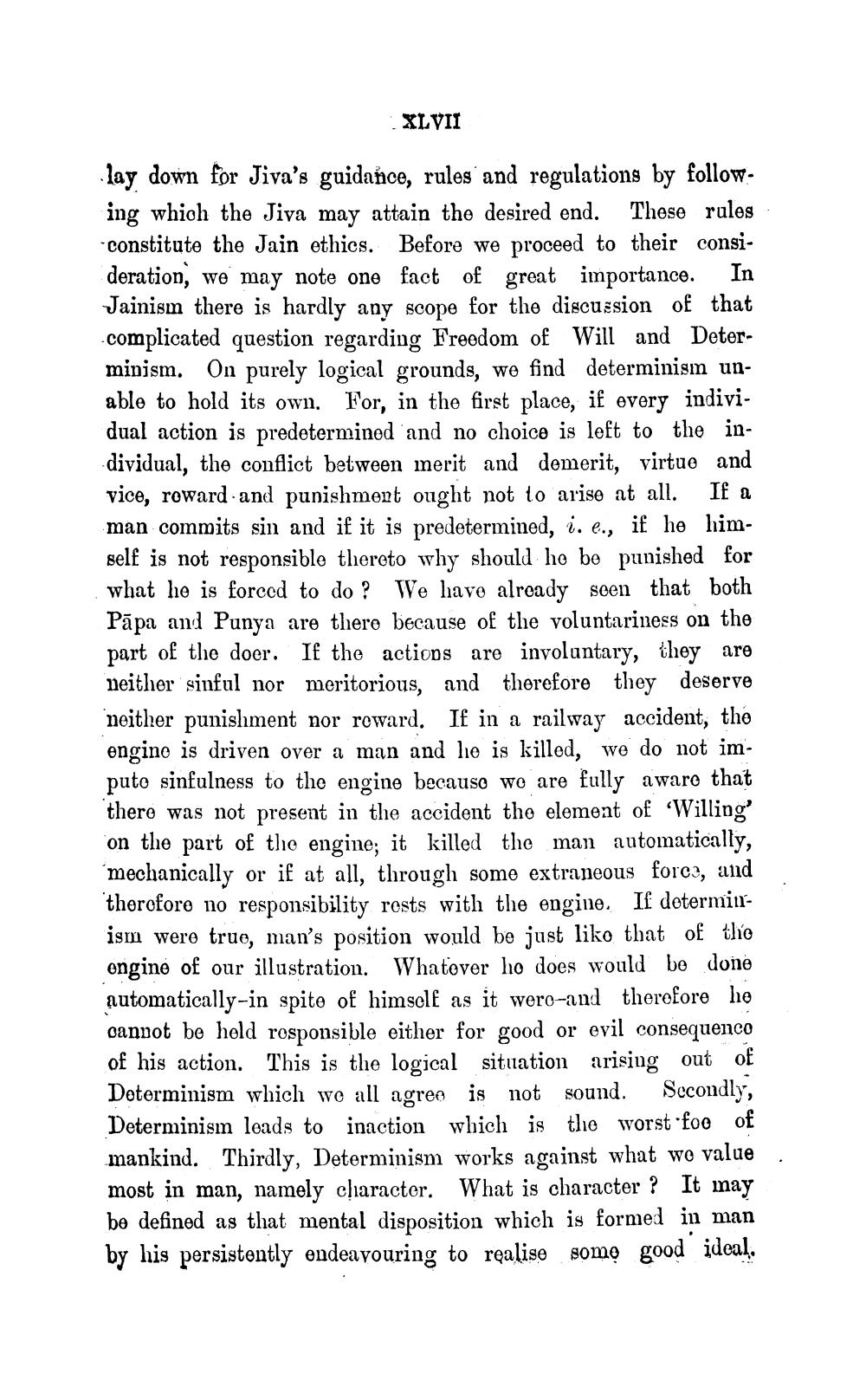________________
XLVII
lay down for Jiva’s guidance, rules and regulations by following which the Jiya may attain the desired end. These rules constitute the Jain ethics. Before we proceed to their consideration, we may note one fact of great importance. In Jainism there is hardly any scope for the discussion of that complicated question regarding Freedom of Will and Determinism. On purely logical grounds, we find determinism unable to hold its own. For, in the first place, if every individual action is predetermined and no choice is left to the individual, the conflict between merit and demerit, virtue and vice, roward - and punishment ought not to arise at all. If a man commits sin and if it is predetermined, i. l., if he himself is not responsible thereto why should he be punished for what he is forced to do? We have already seen that both Pāpa and Punya are there because of the voluntariness on the part of the doer. If the actions are involuntary, they are neither sinful nor meritorious, and therefore they deserve neither punishment nor reward. If in a railway accident, the engine is driven over a man and lie is killed, we do not imputo sinfulness to the engine because we are fully aware that there was not present in the accident the element of Willing' on the part of the engine; it killed the man automatically, mechanically or if at all, through some extraneous force, and therofore no responsibility rests with the engine. If determinism were true, man's position would be just liko that of thio ongine of our illustration. Whatever ho does would be done automatically-in spite of himself as it wero-and therefore ho cannot be held responsible either for good or evil consequenco of his action. This is the logical situation arising out of Determinism which we all agree is not sound. Secondly, Determinism leads to inaction which is the worst foo of mankind. Thirdly, Determinism works against what we value most in man, namely character. What is character ? It may be defined as that mental disposition which is formed in man by his persistently endeavouring to realise somo good ideal.




